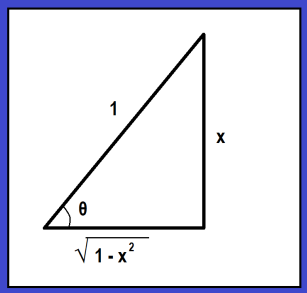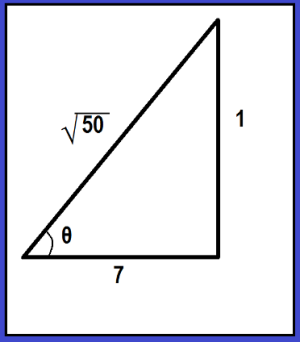Q 3116180079
 Find the value of ` sin^(-1) sin \ pi/4+sin^(-1) \ sin \ (3 pi)/4+sin^(-1) sin \ (5 pi)/4+sin^(-1) \ sin \ (7 pi)/4 `
Find the value of ` sin^(-1) sin \ pi/4+sin^(-1) \ sin \ (3 pi)/4+sin^(-1) sin \ (5 pi)/4+sin^(-1) \ sin \ (7 pi)/4 `


Solution:
`sin^(-1) sin \ pi/4 = pi/4`
`sin^(-1) sin \ (5 pi)/4 = sin^(-1) sin \(pi + pi/4)= sin^(-1) \ (-sin \ pi/4)`
`=-sin^(-1) \ sin \ pi/4 = - pi/4`
`sin^(-1) \ sin \ (3 pi)/4 = sin^(-1) \ sin \ (pi-pi/4) = sin^(-1) \ sin \ (pi)/4 = pi/4`
`sin^(-1) \ sin \ (7 pi)/4 = sin ^(-1) \ sin (2 pi - pi/4) = sin ^(-1) (- sin \ pi/4)= - sin^(-1) \ sin \ pi/4 = -pi/4`
`:. sin^(-1) sin \ pi/4+sin^(-1) \ sin \ (3 pi)/4+sin^(-1) sin \ (5 pi)/4+sin^(-1) \ sin \ (7 pi)/4 = (pi/4-pi/4+pi/4-pi/4) =0`
`sin^(-1) sin \ pi/4 = pi/4`
`sin^(-1) sin \ (5 pi)/4 = sin^(-1) sin \(pi + pi/4)= sin^(-1) \ (-sin \ pi/4)`
`=-sin^(-1) \ sin \ pi/4 = - pi/4`
`sin^(-1) \ sin \ (3 pi)/4 = sin^(-1) \ sin \ (pi-pi/4) = sin^(-1) \ sin \ (pi)/4 = pi/4`
`sin^(-1) \ sin \ (7 pi)/4 = sin ^(-1) \ sin (2 pi - pi/4) = sin ^(-1) (- sin \ pi/4)= - sin^(-1) \ sin \ pi/4 = -pi/4`
`:. sin^(-1) sin \ pi/4+sin^(-1) \ sin \ (3 pi)/4+sin^(-1) sin \ (5 pi)/4+sin^(-1) \ sin \ (7 pi)/4 = (pi/4-pi/4+pi/4-pi/4) =0`



































